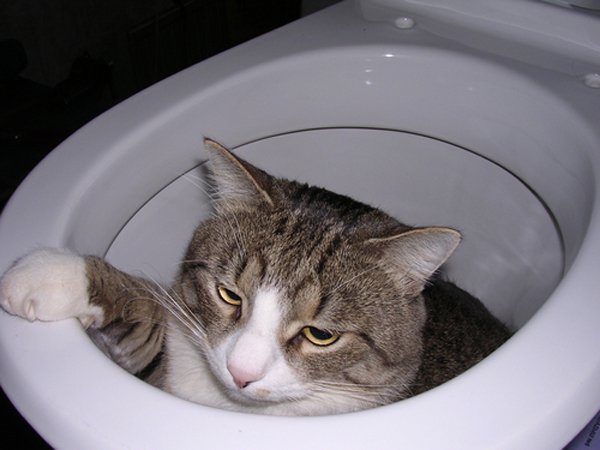Reasons Flushing Cat Poop Down Your Toilet Isn't a Good Idea - Tips for Safer Disposal
Reasons Flushing Cat Poop Down Your Toilet Isn't a Good Idea - Tips for Safer Disposal
Blog Article
Everybody seems to have their own ideas involving Can You Flush Cat Poo or Litter Down the Toilet?.

Intro
As feline owners, it's vital to bear in mind exactly how we deal with our feline friends' waste. While it might appear practical to purge cat poop down the commode, this practice can have damaging consequences for both the atmosphere and human wellness.
Environmental Impact
Purging pet cat poop introduces unsafe microorganisms and parasites into the supply of water, posturing a significant danger to aquatic environments. These impurities can negatively impact marine life and concession water high quality.
Health Risks
In addition to environmental worries, purging pet cat waste can additionally posture health risks to people. Feline feces might have Toxoplasma gondii, a bloodsucker that can trigger toxoplasmosis-- a potentially serious health problem, particularly for expectant ladies and people with weakened immune systems.
Alternatives to Flushing
The good news is, there are safer and more responsible means to take care of feline poop. Consider the complying with alternatives:
1. Scoop and Dispose in Trash
One of the most common technique of dealing with pet cat poop is to scoop it into a naturally degradable bag and toss it in the trash. Make sure to make use of a dedicated litter scoop and take care of the waste without delay.
2. Usage Biodegradable Litter
Opt for naturally degradable feline trash made from products such as corn or wheat. These trashes are environmentally friendly and can be safely disposed of in the garbage.
3. Hide in the Yard
If you have a backyard, take into consideration hiding feline waste in an assigned area away from vegetable yards and water resources. Make sure to dig deep sufficient to prevent contamination of groundwater.
4. Mount a Pet Waste Disposal System
Buy a family pet waste disposal system specifically made for feline waste. These systems use enzymes to break down the waste, reducing odor and ecological impact.
Verdict
Accountable pet ownership expands beyond providing food and shelter-- it also involves appropriate waste administration. By refraining from flushing feline poop down the commode and opting for different disposal methods, we can minimize our environmental impact and protect human health and wellness.
Why You Should Never Flush Cat Poop Down the Toilet
A rose by any other name might smell as sweet, but not all poop is created equal. Toilets, and our sewage systems, are designed for human excrement, not animal waste. It might seem like it couldn’t hurt to toss cat feces into the loo, but it’s not a good idea to flush cat poop in the toilet.
First and foremost, assuming your cat uses a litter box, any waste is going to have litter on it. And even the smallest amount of litter can wreak havoc on plumbing.
Over time, small amounts build up, filling up your septic system. Most litter sold today is clumping; it is made from a type of clay that hardens when it gets wet. Ever tried to scrape old clumps from the bottom of a litter box? You know just how cement-hard it can get!
Now imagine just a small clump of that stuck in your pipes. A simple de-clogger like Drano isn’t going to cut it. And that means it’s going to cost you big time to fix it.
Parasitic Contamination
Believe it or not, your healthy kitty may be harboring a nasty parasite. Only cats excrete Toxoplasma in their feces. Yet it rarely causes serious health issues in the cats that are infected. Most people will be fine too if infected. Only pregnant women and people with compromised immune systems are at risk. (If you’ve ever heard how women who are expecting are excused from litter cleaning duty, Toxoplasma is why.)
But other animals may have a problem if infected with the parasite. And human water treatment systems aren’t designed to handle it. As a result, the systems don’t remove the parasite before discharging wastewater into local waterways. Fish, shellfish, and other marine life — otters in particular — are susceptible to toxoplasma. If exposed, most will end up with brain damage and many will die.
Depending on the species of fish, they may end up on someone’s fish hook and, ultimately on someone’s dinner plate. If that someone has a chronic illness, they’re at risk.
Skip the Toilet Training
We know there are folks out there who like to toilet train their cats. And we give them props, it takes a lot of work. But thanks to the toxoplasma, it’s not a good idea.

I am just very interested in How to Dispose of Cat Poop and Litter Without Plastic Bags and I really hope you enjoyed the entire blog entry. For those who enjoyed reading our article please do not forget to share it. I praise you for your time. Visit again soon.
Call Today Report this page